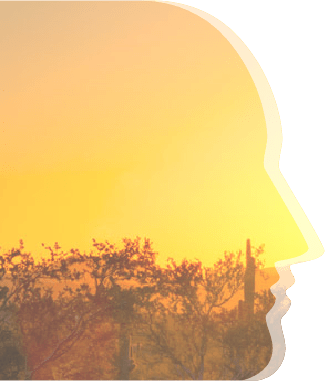Acute otitis media (AOM) is an infection of the middle ear (the space located behind the eardrum) that has been present for 3 weeks or less. AOM results from bacterial or viral infections of the middle ear space along with blockage of the Eustachian tube. The Eustachian tube runs from the middle ear to the back of the nose and usually drains fluid produced in the middle ear. Several factors can cause the Eustachian tube obstruction, including allergies, extra saliva or mucus produced during teething, cold/sinus infections, enlarged or infected adenoids, or irritation from tobacco smoke. AOM is very common in children and infants because their Eustachian tubes can be easily blocked, but AOM may also occur in adults.
Symptoms can include fever, ear pain, ear drainage, and decreased hearing. Children with AOM may tug or pull at their affected ear, be irritable, cry more than usual, have trouble sleeping, lose their balance easily, have a fever over 100°F, have loss of appetite, or vomit due to nausea. Most ear infections do not need to be treated with antibiotics. Treatment will depend on several factors, including the child’s age and severity of symptoms. Symptoms usually improve within the first few days, and most infections clear up on their own without treatment within 1-2 weeks. Therefore, a “wait and see” approach is often recommended for the first 48-72 hours in children greater than 2 years of age that are otherwise healthy and have only mild, non-progressive symptoms.
Indications to see a doctor include worsening symptoms over 24-48 hours, high fever, severe ear pain, ear discharge, severe headache, dizziness, swelling around the ear, or weakness/twitching of facial muscles. Antibiotics are often prescribed for children less than 2 years old, those who have high fevers, those with moderate-severe ear pain, and individuals with symptoms that do not improve within 24-48 hours.
Why Choose Us
- Dr. Abraham Jacob, Medical Director for Ear & Hearing (E&H) at the Center for Neurosciences (CNS), is fellowship trained in Otology, Neurotology, and Cranial Base Surgery. He is the first and most experienced Neurotologist recruited to the Tucson area.
- Dr. Jacob was a founding member of the University of Arizona (UA) Department of Otolaryngology prior to his departure and transition to CNS. At UA, he was Vice Chair of ENT and held the rank of full Professor with Tenure.
- Dr. Jacob transitioned his practice to the Center for Neurosciences in early 2017 as he felt the new environment helped him to optimize the delivery of personalized ear and lateral skull base care.
- Primary care physicians such as family doctors, pediatricians, and internists often treat acute otitis media. Should complications such as mastoiditis, labyrinthitis, tympanic membrane perforations, facial nerve weakness, or intracranial infection arise, referral to Dr. Jacob for his specific medical/surgical expertise in Otology & Neurotology is recommended. With comprehensive tools available to him for in-office examination, assessment of hearing, and surgical management, Dr. Jacob is able to provide definitive care for all ear and lateral skull base disorders.
Ear & Hearing Appointments
Our Otologist/Neurotologist specializes in the medical and surgical care of patients with disorders of the ear and lateral skull base. Otology/Neurotology and Audiology work together to offer complete hearing health solutions.
To schedule an appointment with our Ear & Hearing department, please call us at (520) 795-7750.
Our Physicians’ Goal
Our physicians’ goal is to provide the highest-quality neurological care– the same level of care we would want for ourselves or our loved ones.
We will help our patients to understand their condition, listen to their concerns, answer their questions, and provide the best clinical treatment available.
